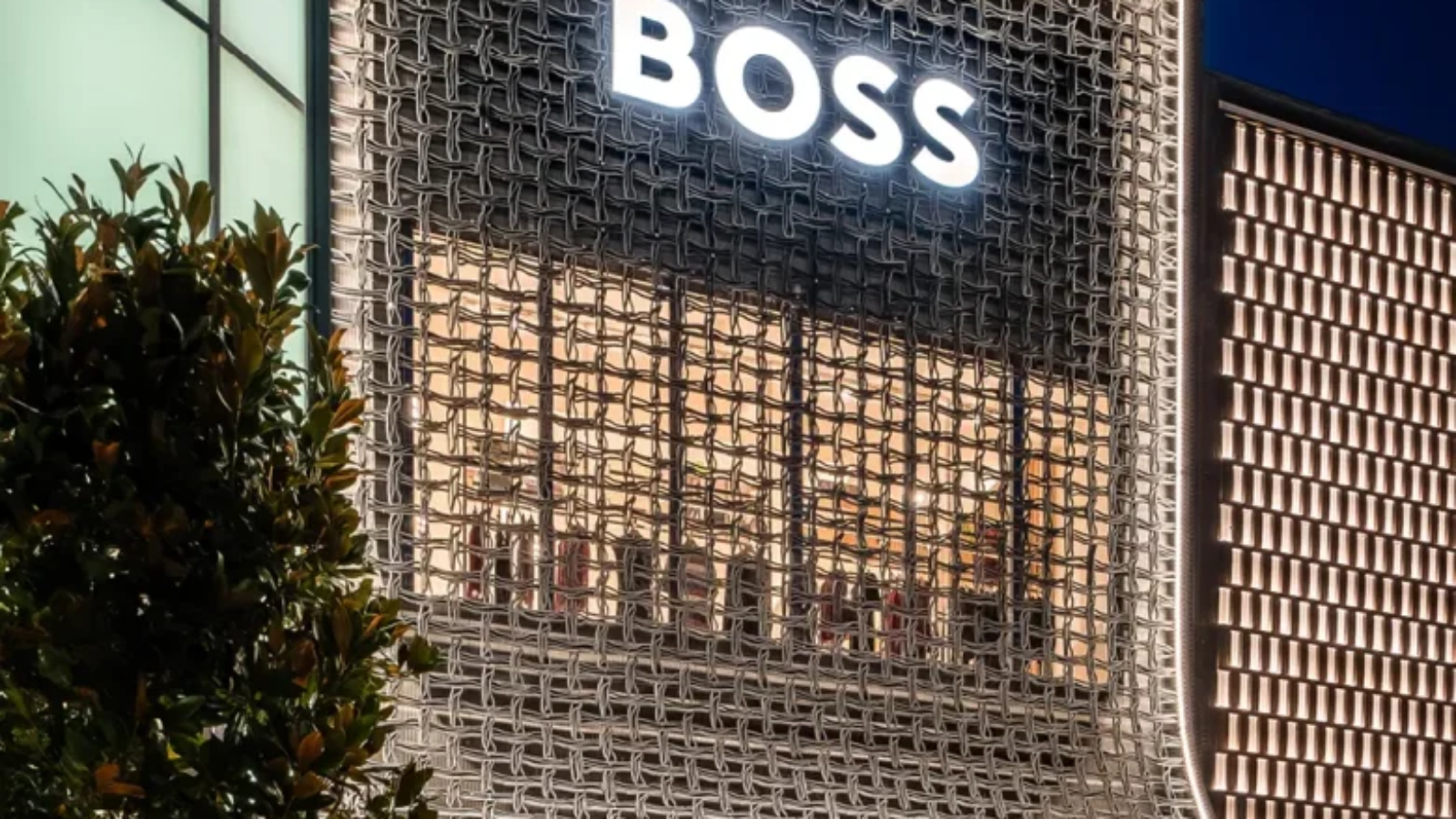In recent years, the use of large format polymer 3D printing technology in architecture has rapidly evolved, pushing the boundaries of design and sustainability. Dutch company Aectual perfectly embodies this transition and it’s latest project, the recently renovated BOSS store at İstinye Park in Istanbul, is a striking example of this trend, featuring an innovative 3D printed facade that not only serves as a bold aesthetic statement but also underscores a commitment to sustainable design.
The integration of 3D printing into architecture marks a significant shift in how structures are conceptualized and constructed. The BOSS store at İstinye Park exemplifies how 3D printed facades can transform retail spaces into visually captivating and environmentally responsible showcases. It is the result of a collaboration between three key entities: BOSS, the German fashion house known for its sophisticated style; Ippolito Fleitz Group, an award-winning architecture and design studio; and Aectual, a pioneer in 3D printed architectural solutions. Each partner brought unique expertise to the table, resulting in a facade that is both a work of art and a feat of engineering.
In an era where sustainability is not just a trend but a necessity, the BOSS facade stands out for its commitment to eco-friendly design. Aectual’s ‘Circular Service’ model is at the heart of this project, emphasizing the use of recycled materials and the possibility of reusing the facade’s components in future applications. This approach aligns perfectly with BOSS’s brand values, which increasingly prioritize sustainability alongside style.

Aectual’s robotic 3D printing technology enabled the creation of the BOSS facade, which consists of 136 unique panels made from recycled post-industrial polypropylene. The facade of the BOSS store also draws inspiration from the intricate art of textile weaving, a subtle nod to the brand’s roots in high-quality garment production. The design mimics the delicate wefts and warps of fabric, translating them into a three-dimensional form that covers the storefront like a protective yet breathable skin. This interplay between fashion and architecture creates a powerful visual connection between the brand’s products and its physical retail space.
Manufacturing on Demand
Covering an area of 73 square meters, the facade is composed of interlocking panels, each meticulously designed to fit together like pieces of a puzzle. These panels are lightweight yet durable, offering both aesthetic appeal and practical benefits such as shading and temperature regulation. The installation process was a collaborative effort, with several 3D printed mockups produced to ensure that the final product met all design and structural requirements.
Beyond its visual impact, the BOSS facade is a testament to the potential of sustainable architecture. By using recycled materials and employing a circular design process, the project significantly reduces waste and carbon footprint. Additionally, the facade’s design contributes to the energy efficiency of the store by providing natural shading, which helps regulate the interior temperature and reduce the need for artificial cooling.
The BOSS facade is also more than just a storefront; it is an invitation to explore the brand’s world. Its unique design captures the attention of passersby, drawing them into the store and enhancing their shopping experience. This is a prime example of how innovative architecture can serve as a powerful tool for brand differentiation and consumer engagement.
Located in one of Istanbul’s premier shopping destinations, the BOSS store at İstinye Park is a flagship location that sets the standard for the brand’s retail presence in the region. The newly installed 3D printed facade plays a pivotal role in elevating the store’s image, reflecting BOSS’s commitment to cutting-edge design and sustainability. The response from both customers and industry insiders has been overwhelmingly positive, cementing the store’s status as a must-visit destination.
Aectual’s expertise in 3D printed architecture is not limited to the BOSS store. The company has been making waves globally with a series of high-profile projects, including the Tiffany & Co. storefront at Changi Airport, which was constructed using recycled ocean waste, or the Signify bar at Milan Design Week, made from recycled Tetrapak. These projects highlight Aectual’s ability to blend sustainability with innovative design, making them a leader in the field of circular architecture.
You might also like:
Serendix purchases 3 new construction 3D printers: Based in Nishinomiya City, Hyogo Prefecture, and led by CEO Hiroyasu Koma, Serendix, along with its consortium partners, has installed these new 3D printers at locations in Kumamoto, Chiba, and Okinawa Prefectures. The printers are owned by Serendix and its partner companies, Shinshowa Co., Ltd. (Kimitsu City, Chiba Prefecture), and Tamaki Housing Co., Ltd. (Naha City).
* This article is reprinted from 3D Printing Media Network. If you are involved in infringement, please contact us to delete it.
Author: Davide Sher



Leave A Comment